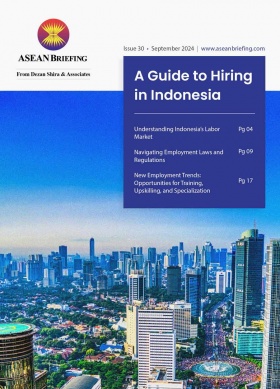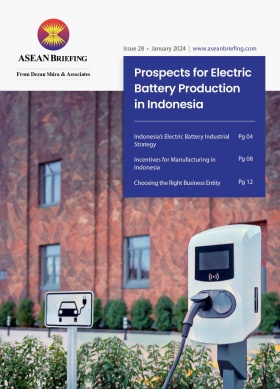Why BYD, GAC Aion, and Citroen are Betting Big on Indonesia’s EV Market
Indonesia is taking bold steps to establish itself as a hub for electric vehicle (EV) production in Southeast Asia by offering attractive tax incentives to global car manufacturers. Starting in 2025, leading automakers—China’s BYD and GAC Aion, along with France’s Citroen—will benefit from exemptions on import taxes and a reduced luxury sales tax rate of 15 percent. Announced by Industry Minister Agus Gumiwang Kartasasmita, these measures aim to lower manufacturing costs and drive up local EV production and sales.
This strategic move highlights Indonesia’s commitment to creating a competitive regulatory environment for global investors and aligns with the government’s ambition to transform the country into a regional hub for battery-powered electric vehicles.
Commitments from global EV manufacturers
The Indonesian government’s incentive programs are already bearing fruit by drawing commitments from leading EV manufacturers. BYD, one of the largest global electric vehicle producers, has expressed plans to establish a manufacturing presence in Indonesia. This expansion aligns with BYD’s ambition to increase its market share in Southeast Asia.
The three carmakers—BYD, GAC Aion, and Citroen—have all committed to building factories in Indonesia. In return, they will benefit from an exemption on import taxes for machinery and equipment, as well as a reduced luxury sales tax rate of 15 percent. These incentives are designed to lower the cost of manufacturing and encourage more foreign investment in the EV sector.
Indonesia’s EV market projections
The Indonesian EV market is expected to experience remarkable growth over the next decade. In 2022, the market was valued at approximately US$ 533 million. By 2029, it is projected to reach US$ 2 billion, driven by a compound annual growth rate (CAGR) of 20.96 percent. This rapid expansion is supported by the government’s ambitious targets for EV adoption. By 2025, Indonesia aims to have 2.1 million electric motorcycles and 400,000 electric vehicles on the road, with 20 percent of these being manufactured locally. By 2030, the government’s target will increase to 2.2 million electric cars and 13 million electric motorcycles.
Indonesia’s downstream nickel industry and supply chain potential
Indonesia’s ambitions to become a leading hub for electric vehicle manufacturing extend beyond assembly plants and incentives. The country is strategically investing in developing a robust supply chain that covers every aspect of EV production, with a particular focus on nickel processing. As the world’s largest holder of nickel reserves, Indonesia has implemented policies mandating the domestic processing of nickel ore. This has led to significant value addition and export growth.
In addition to nickel, Indonesia is fostering partnerships with international firms to develop other critical components such as lithium, cobalt, and manganese, all essential for EV battery production. By securing a steady supply of these materials, the country aims to become a major supplier of EV batteries for global markets. The government has also initiated joint ventures with South Korean and Chinese firms to set up battery production facilities, enhancing technological capabilities and workforce skills.
Collaboration with international partners
Indonesia’s drive toward EV leadership is not happening in isolation. The country is leveraging partnerships with global stakeholders to accelerate its progress. Collaborations with countries like China, South Korea, and Japan are helping to bring in expertise, technology, and investment. For example, South Korea’s LG Energy Solution and China’s CATL (Contemporary Amperex Technology Co. Ltd.) have committed to building battery plants in Indonesia, ensuring the nation plays a central role in the EV supply chain.
Additionally, Indonesian officials are actively courting European and American manufacturers, aiming to diversify partnerships and reduce dependency on any single country. These collaborations are not only bringing capital and technology but also helping to develop local talent through knowledge transfer and training programs.
Infrastructure and battery production plans
A critical component of Indonesia’s EV strategy is developing the necessary infrastructure to support widespread EV use. The state-owned power company PLN plans to install over 31,000 additional charging stations by 2030. This development is crucial for addressing concerns about charging availability and encouraging more consumers to switch to electric vehicles.
Indonesia’s downstream nickel industry also supports the country’s goal of becoming the third-largest producer of EV batteries by 2027. By 2030, Indonesia targets an annual battery production capacity of 140 GWh. This focus on battery production not only supports local EV manufacturing but also strengthens Indonesia’s position in the global supply chain for electric vehicles.
The road ahead for Indonesia’s EV industry
By focusing on a complete ecosystem, international partnerships, and job creation, Indonesia is paving the way for a sustainable and prosperous EV future. The strategic decision to offer tax incentives for EV manufacturers, combined with its natural resources, ambitious growth targets, and downstream nickel industry, positions the country to become a regional leader in electric vehicle production.
About Us
ASEAN Briefing is one of five regional publications under the Asia Briefing brand. It is supported by Dezan Shira & Associates, a pan-Asia, multi-disciplinary professional services firm that assists foreign investors throughout Asia, including through offices in Jakarta, Indonesia; Singapore; Hanoi, Ho Chi Minh City, and Da Nang in Vietnam; besides our practices in China, Hong Kong SAR, India, Italy, Germany, and USA. We also have partner firms in Malaysia, Bangladesh, the Philippines, Thailand, and Australia.
Please contact us at asean@dezshira.com or visit our website at www.dezshira.com and for a complimentary subscription to ASEAN Briefing’s content products, please click here.
- Previous Article Navigating Data Protection Laws in ASEAN-6: A Guide for Foreign Investors
- Next Article South Korea Extends ETA Exemption for Singaporeans








